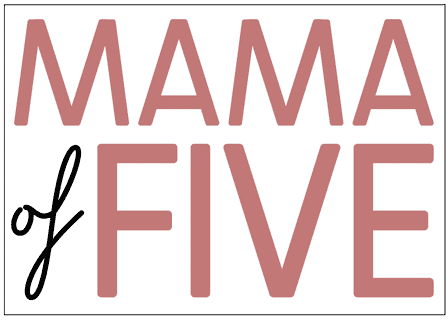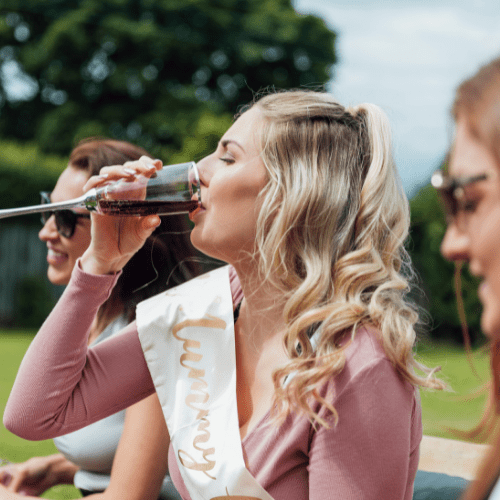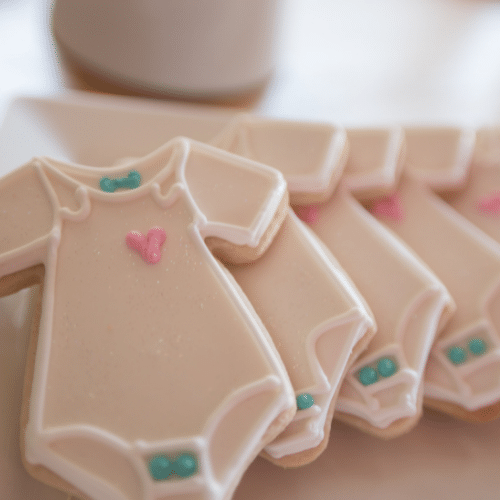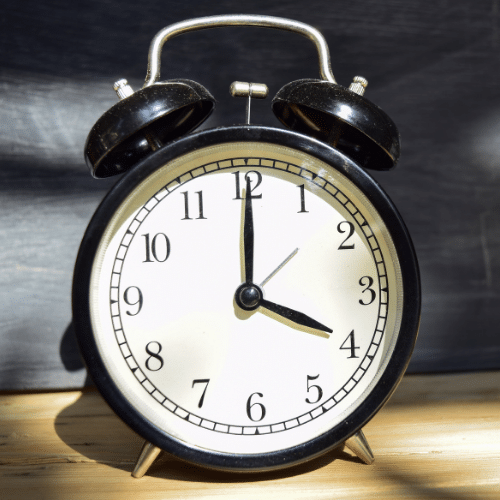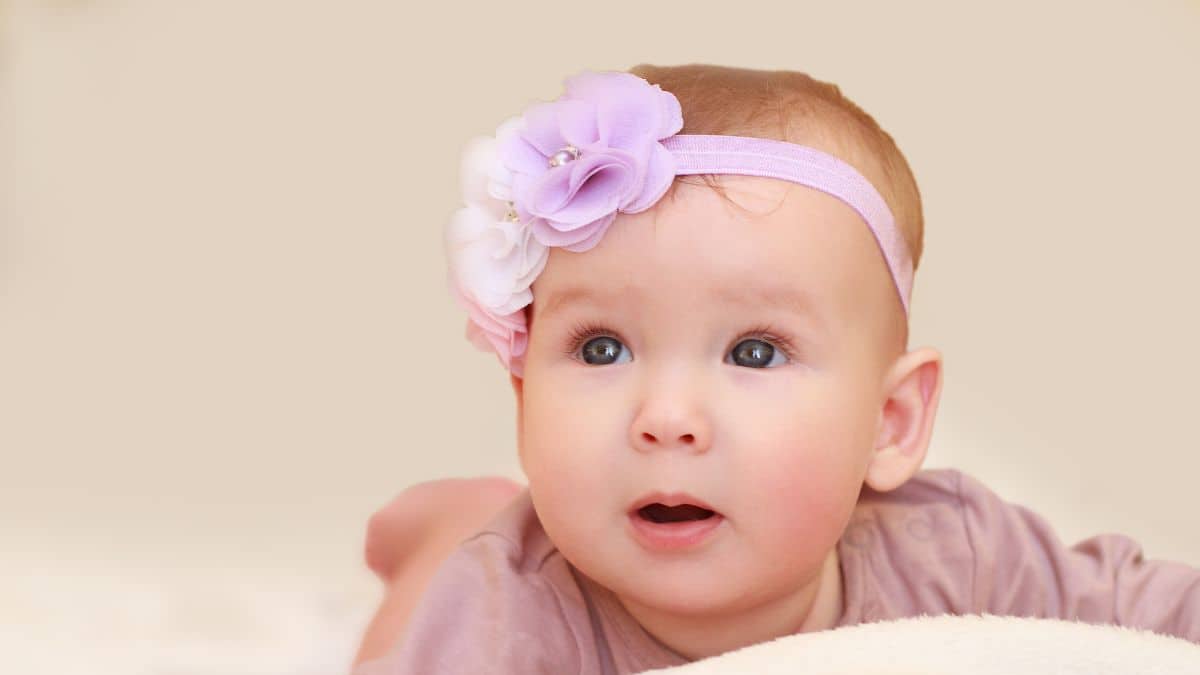Although the custom of greeting the arrival of a baby has been around since ancient times, the hosting of baby showers is still considered a relatively recent phenomenon in the UK.
The most recent high-profile baby shower was the one held in honor of Meghan Markle prior to son Archie’s birth in New York in 2019 which provoked controversy a certain backlash in the UK.
So are baby showers a fad or are they here to stay while standing as another example of the increasing Americanization of British culture?
As an Amazon Associate, I earn from qualifying purchases. The links below may be affiliate links. Please read my disclosure policy for more information.
What is a baby shower?
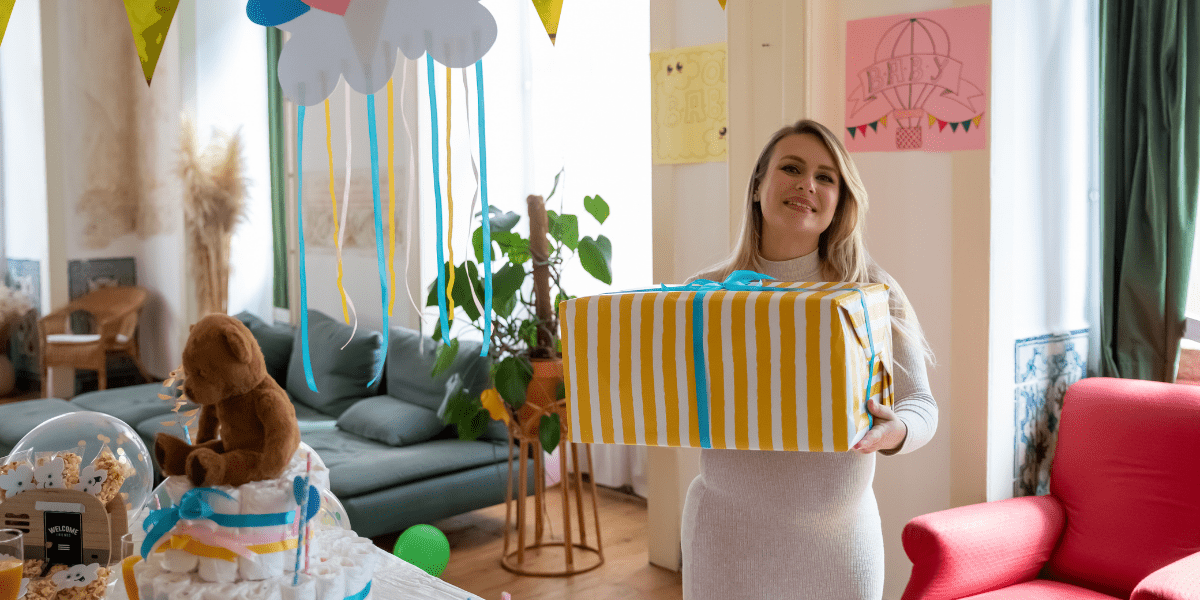
In a nutshell, a baby shower is a gathering to celebrate the arrival of a new born child. It mostly takes place before the birth and is hosted in honour of the (often first-time) expectant mother.
Friends and family ‘shower’ the mother with gifts and good wishes in a party atmosphere with the aim of expressing support for her.
However, although the above describes a typical baby shower there are as many as 14 different types.
An ancient tradition
The baby shower is believed to have originated from as far back as the Egyptian and Greek civilizations. In those times there was a more ritualistic approach to celebrating birth with cleansing and purification rituals common as the process of birth was considered ‘unclean’.
In fact, the mother was often quarantined for up to 40 days after the baby’s arrival. Rituals developed into the Middle Ages to include baptism and gifts.
The modern-day baby shower really took off in America after the baby boom of World War Two and saw the celebration held before the baby’s birth.
When should you hold a baby shower?
Baby showers are typically held 1 to 2 months before the birth. This is to ensure that enough time is left before the event but also far enough into the pregnancy for it not to be considered ‘premature’ (in all senses of the word).
However, for some, holding big events in advance of childbirth can add unnecessary stress to what is an already-delicate time and so prefer to wait until the baby’s arrival before celebrating.
How lively are baby showers?

Baby showers can be lively affairs and include party games. Although alcohol can be included to keep things lively, since the mom-to-be will likely be cautious prior to the big day, they are typically ‘dry’ affairs.
Many opt instead for the post-birth celebration — the so-called ‘sip and see’ party.
Sip and See
Sip and see parties also originated in America, specifically in the South where Southern ‘Belles’ invited guests to ‘sip’ drink and ‘see’ the new-born. They tend to be held in the mother’s home to avoid them having to travel – especially as the baby will be dictating the parents’ routine in its early days.
Some mothers will wait until the baby is a few months old and more settled before holding a more lively celebration and allow them to indulge more fully.
Dads also like to celebrate
Although baby showers are usually associated with females, male participation in baby showers goes back as far as Victorian times. Indeed, fathers are just as likely to have their own version of a baby shower; in 2015, Pinterest searches for the term “man showers” increased by 149%.
In the US, these events are known as ‘dadchelor parties’ and involve such American pastimes as barbecue, poker and beer.
Are baby showers just an American thing?
Baby showers are not limited to the US and UK but there are distinct cultural differences in how countries celebrate arrivals. In Latin America, these are loud affairs with games, singing, dancing and traditional food.
In India, families hold a women-only event called Godh Bharai in the 7th month of pregnancy in which the mother dresses in special garments and is anointed.
In South Africa, baby showers are called Stork Parties and are surprise affairs hosted by a close friend of the mom-to-be whereas in France, mothers don’t celebrate at all prior to birth and wait until the child’s first birthday before hosting any kind of party.
Baby showers are bad luck in Russia
In some countries, the very practice of celebrating a forthcoming birth is considered bad luck. In Russia for example, nothing is purchased in advance of the birth and both mother and baby are kept in quarantine for 7 days once the baby has arrived.
In fact, it is custom for fathers not to be in the delivery room during the process.
Do Brits have baby showers?
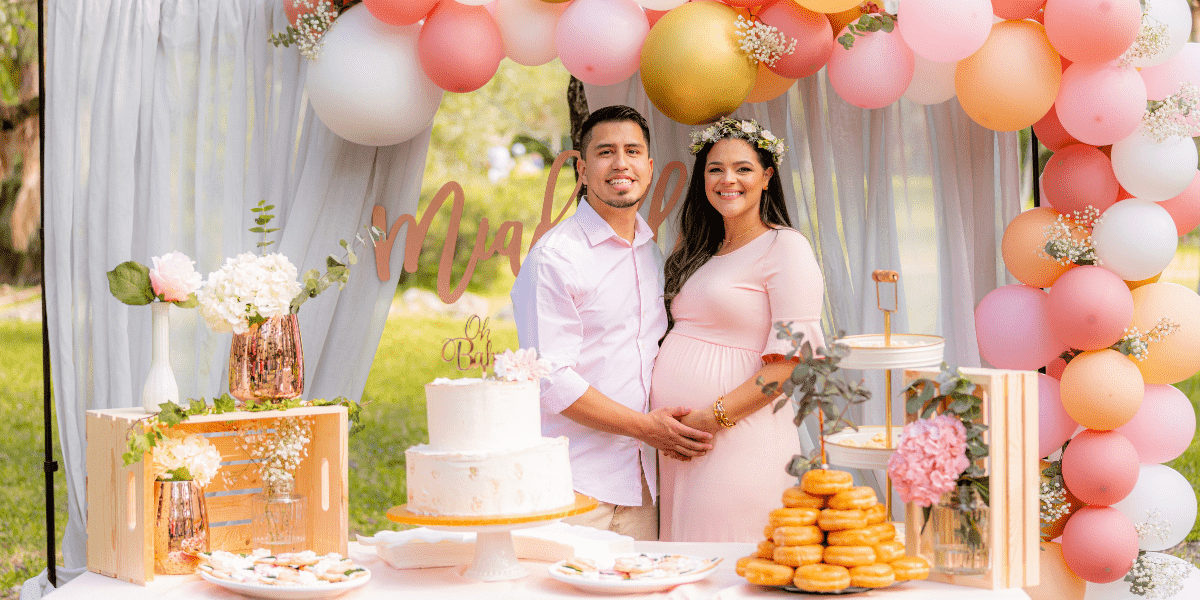
Baby showers have existed in the UK since the Victorian era when tea parties took place after the birth (standards dictated that pregnancy was kept secret). Interestingly, the terms pregnant or pregnancy were considered taboo.
This era introduced fun and party games into proceedings along with customs such as the grandmother gifting silver to the child.
The timing of baby showers changed after World War Two to take place before the birth. This evolved further to begin including male members of the family such as fathers and grandfathers.
A third of parents hold a shower in the UK
Meghan Markle’s baby shower provoked a spokesperson for the Royal Family to claim that “we don’t do it here in the UK”. However, a recent survey by American Express found that nearly three quarters of parents in the UK hold pre-birth events with over a third holding a baby shower.
Baby showers in the UK are similar events to their American counterparts. Some parties take a more low-key approach involving guests sewing together in order to make patchwork quilts for the child.
Others have craft parties in which guests create gifts for the baby.
Baby showers vs gender reveal parties
A significant number of parents hold increasingly popular gender reveal parties ahead of the birth. A separate survey showed that gender reveal parties were actually overtaking baby showers in the UK (15% vs 10%).
However, with increasing gender fluidity (it is estimated around 1% of the UK population identify as trans or non-binary), such events can be considered to be reinforcing gender stereotypes and therefore not fair on the unborn child.
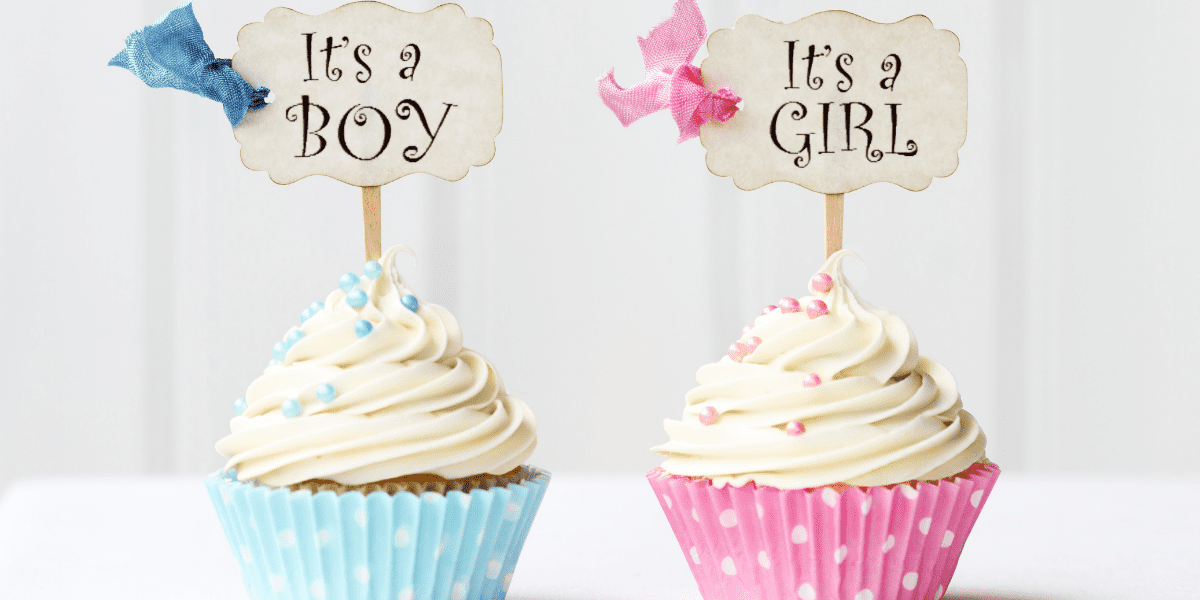
Wetting the baby’s head
Fathers in the UK are just as keen when it comes to celebrating the arrival of their offspring. It is a tradition to ‘wet the baby’s head’ after the birth which typically involves going to the pub with friends.
However male baby showers still appear to be evolving in the UK as online searches on the topic tend to throw up results on how to shower a male baby!
How much do baby showers cost?
Meghan Markle’s baby shower apparently cost $200,000, although who paid for it is unclear. This is small-fry compared to some celebrity affairs.
The aforementioned American Express survey found that the average cost of a baby shower in the UK was £91 with guests spending an average of £38 on gifts. But it’s generally accepted that the idea is to gather with friends and celebrate rather than ‘splashing out’.
So, who pays?
Each baby shower has its own sets of rules and etiquette. Who shoulders the cost very much depends on individuals’ circumstances.
Friend(s) or relative(s) organizing the event can pay for the cost whereas in some instances this is split among the participants. Asking guests to contribute can be a prickly affair however and can cause offence to some.
Additionally, if the mom-to-be hosts the party this can be construed as asking for gifts.

Should the host pay?
This is an interesting question as the mother (despite their place usually hosting the event) may not necessarily be the host. Many view the issue of contributing to a baby shower in the same way as that of a bachelorette party (hen party in the UK) in which guests are expected to contribute.
Others are of the view that buying a present for the expectant mother is payment enough but again it comes down to the circumstances of the people involved.
Hiring a neutral venue
If the baby shower takes place in a restaurant, then, like most meals with a group, the cost is split among the guests. The issue of catering for different nutritional requirements then arises which can be a deciding factor in certain people attending or not.
If a function room is hired, then this adds another cost to proceedings which can also increase stress levels
Virtual baby showers
The pandemic has meant that baby celebrations have had to move online. Like all parties, a virtual version just isn’t the same as the real thing, however there is still the same focus on fun, games, chat and laughter. More importantly for guests, there is no obligation for the occasion to be a ‘dry’ affair.
What do Brits think about baby showers?
Despite baby showers becoming more established in the UK, opinion is split as to their legitimacy. A quick scan on parenting chatrooms shows some quite polarized opinions towards baby showers.
Those opposed to them are of the view that baby showers are self-indulgent and an opportunity for the new mother to stock up on baby items by getting friends and family to pay for them. Others sarcastically say they prefer a bath for their baby!
US versus UK cultural differences
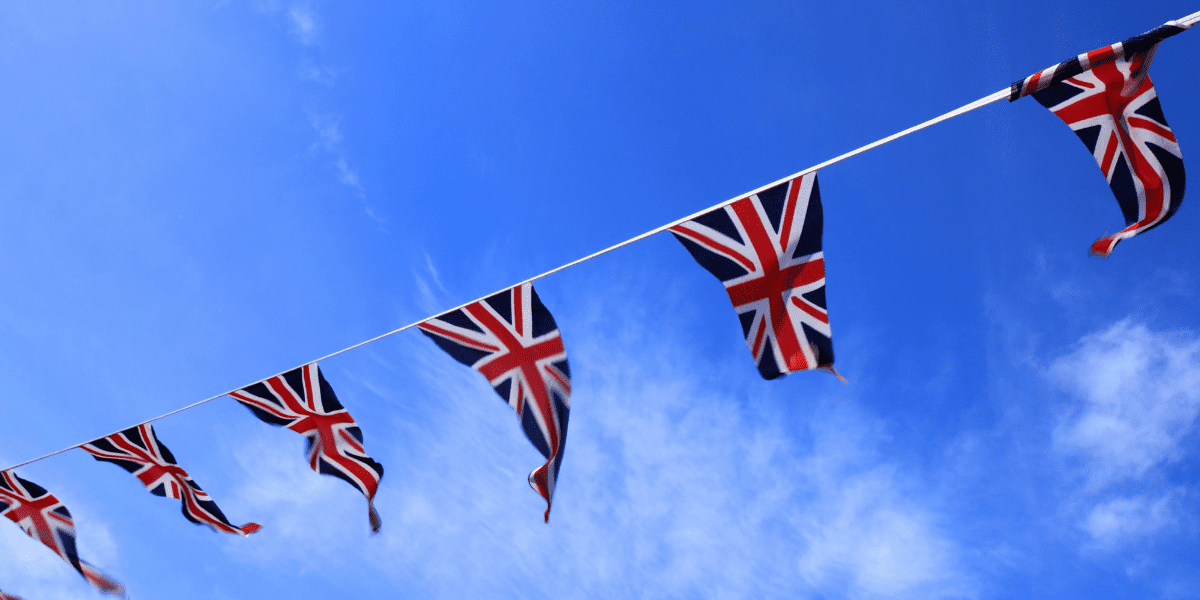
The differences in opinion towards baby showers in the UK versus the US appear to be cultural. There are different parenting styles, health systems, not to mention attitudes towards celebrating.
But, despite protestations, it is clear that American cultural pastimes (not to mention language) are exerting an ever greater influence on UK culture.
Are baby showers here to stay in the UK?
Despite the received wisdom that baby showers are a distinctly American phenomenon, they have always existed in some form both in the UK and elsewhere. Indeed, as long as there are mothers who have friends and family who want to celebrate the arrival of a new human.
What forms these take appear to be ever evolving and there is no one right or wrong way.
In many ways, baby showers are an example of a long-standing worldwide tradition which the Americans have taken and put their own stamp on. It is not the first that the UK has looked to its Atlantic cousins for inspiration and, it’s safe to say, certainly won’t be the last.
